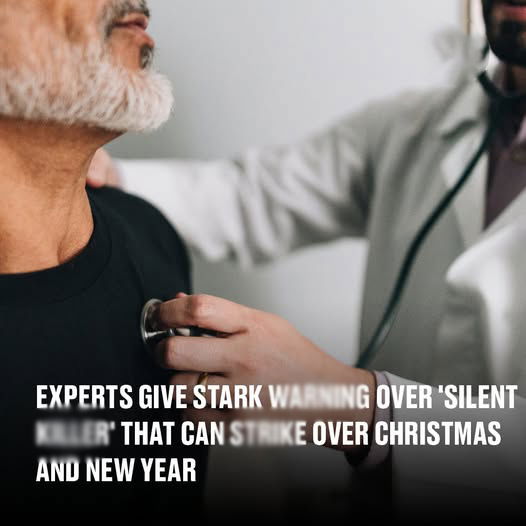
Our Christmas diets can cause unwanted health concerns.
Experts have issued a warning about a ‘silent k.i.l.l.e.r’ who may strike over the Christmas and New Year holiday season.
We’re only a few days away from Christmas, so the holiday season is in full flow.
Many of us will spend the holiday season indulging in large amounts of food and wine.
However, health experts warn that excessive use, particularly of alcohol, can lead to life-threatening health issues.

One particularly alarming symptom is ‘holiday heart syndrome’ (medically known as atrial fibrillation), which happens when a person consumes an excessive amount of alcohol.
What is holiday heart syndrome?
According to the NHS, atrial fibrillation (AFib) is a condition characterized by an irregular and abnormally fast heartbeat. The problem develops when the upper chambers of a person’s heart do not beat properly.
AFib is commonly associated with other heart problems such as congenital heart disease, pericarditis, and excessive blood pressure, but it can also be caused by binge drinking.
According to Baystate Health, heavy caffeine consumption and fatty meals high in salt can also contribute.
“An unusually heavy meal such as one the holidays are known for, or at any time of the year, can put additional stress on the heart as your meal is digested, and overeating and over-drinking can increase your blood pressure and heart rate,” Dr. Amir Lotfi of the Heart & Vascular Program at Baystate Medical Centre explained.

Holiday heart syndrome usually happens during the holiday season, holidays, and long weekends because people are unwilling to seek medical attention. If left untreated, AFib can lead to blood clots in your circulation.
AFib patients commonly report shortness of breath, tiredness, and chest pain.
Dr. Lotfi is particularly concerned about people who postpone seeking help over the holiday season because they do not want to ruin their holiday.
“All too often, people wait to decide to go to the emergency room because they don’t want to ruin the holiday for others, putting them at r.i.s.k for greater consequences,” he warned.
Meanwhile, the NHS recommends that anyone having intermittent chest pain, a sudden shift in their heartbeat, or a heart rate that is consistently lower than 60 or higher than 100 consult their GP.



















